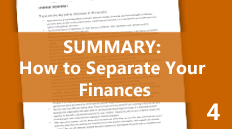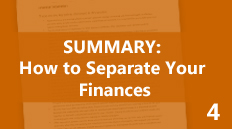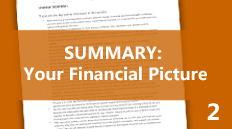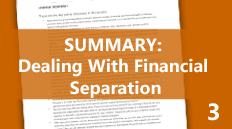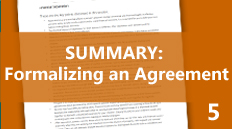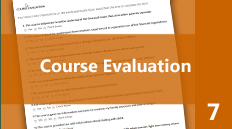How to Separate Your Finances
These are the key points discussed in this section.
Child Support
| * | Both parents have a legal duty to financially support their children. In some circumstances step-parents and persons who stand in the place of a parent like a guardian may also be asked to pay child support. |
| * | Child support is money paid for the benefit of the child. |
| * | The person paying the support is called the payor and the person receiving the support is called the recipient. |
| * | The support is not paid to benefit the parent with whom the children mostly live. It is intended to cover the extra costs that a parent incurs because of the children being in their primary care. |
| * | The parent with whom the child lives is also expected to contribute to support the children’s living expenses, based on their gross income. |
| * | In practice, the parent with whom the child lives usually pays more than their “share” of child support as they absorb all the expenses that aren’t covered by the payor. |
| * | With both parents contributing to the children’s expenses, the children’s living conditions will be better than if only one parent provided support. |
| * | The recipient of child support is free to use the money at their discretion. They are not required to account for how it is used so long as the children’s needs are being met. |
| * | Child support is averaged over the year. It is covers a very wide scope of common day-to-day expenses such as share of rent, utilities, groceries and activities as well as clothing. |
| * | The federal Child Support Guidelines are used to determine the base amount of child support. Calculations are based on parenting arrangements, the payor’s gross income, number of children and province where payor lives. |
| * | Who pays child support, and how much, depends upon the children’s parenting arrangements. |
| * | Child support is not a fee paid in exchange for time spent with the children. The children’s standard of living should not be affected by conflict between the parents over time spent with the children. |
| * | Child support is given priority over spousal support. |
| * | In BC child support continues to each child is 19 unless the child is still a dependent due to schooling or serious chronic illness. |
| * | Special and/or extraordinary expenses such as medical, dental, educational including post-secondary and extracurricular expenses are sharable between the parents in proportion to their income. |
| * | Parents can make their own agreement about how special and/or extraordinary expenses with be shared. |
| * | The court can make, change or cancel a child support order whenever any matter regarding the children comes before the court. It also has discretion to make an order different from the Child Support Guidelines in cases where residency is split or the payor’s income exceeds $150,000 or there are other special circumstances. |
| * | Parents are much more willing to pay child support if they are involved with children and are part of the decision making process when special expenses come up. A neutral and timely request for money is better received by the payor. |
| * | Spousal support is a payment of money by one partner to their former partner who has been financially disadvantaged as a result of the relationship ending. |
| * | Each partner has a duty to become independent and self-sufficient as soon as possible. |
| * | Spousal support can be asked for under the Divorce Act and the Family Law Act and need to be made within two years of the date of divorce for married partners or the date of separation for unmarried partners. |
| * | Spousal support is not mandatory and the couple can make their own agreements. |
| * | Whether spousal support is given will be decided after considering the length of the marriage, the difference in incomes, if one partner is at an economic disadvantage, the earning capacity of the partners and existing orders or agreements. |
| * | In BC, the courts will consider “The Spousal Support Advisory Guidelines” to determine how much support should be paid and for how long. These are only applied after the court has determined that there is an entitlement to support. |
| * | The calculation of spousal support is based on the total disposable income available to both parties. Child support will be considered in determining the amount. |
| * | The key factors in determining the length of time support is to be paid are the length of the marriage plus the age of the recipient and the age of the youngest child. The guidelines provide a range so the actual amount is a matter for negotiation or adjudication and depends on the facts of the case. |
| * | The court usually considers spousal support at the same time as or after the family property has been divided between the parties. Spousal support may be ordered as a “top up” to the division of assets. |
| * | A court may order spousal support for periodic payments for a fixed period of time, a definite term, or for forever, and indefinite term. |
| * | Generally, support payments made under a court order or written agreement for the support of the recipient are taxable to the recipient and deductible by the payor if order clearly specifies the amount to be paid and all payments for child support are fully paid. |
| * | Support orders or agreements are reviewable and can be varied, changed, cancelled or replaced. |
| * | The division of property is governed by the Family Law Act in BC. |
| * | Family property is the property either or both spouses got after the date they began to live together or got marries whichever was first. It is property that is owned by one or both spouses at the date they separated and includes the family home and car as well as retirement savings plans, bank accounts, shares, investments, trust property, refunds, pensions and debts. It also includes the increase in the value of “excluded property” that happened during the relationship. |
| * | Family property is presumed to be divided 50-50 and this division also applies to family debt. When partners separate they become tenants-in-common. |
| * | The date of separation is the point at which family property is identified and the date of hearing or agreement is the date at which it is valued. |
| * | Excluded property includes property acquired before the relationship began, gifts or inheritances, settlement awards, money paid under an insurance policy, property held in a discretionary trust, property derived from property or the disposition of property and property bought after relationship ended as long as not acquired with family property money. |
| * | If excluded property increased in value while the couple were together, they usually have to share that increase in value. |
| * | Value of the property is based on its fair market value which is the price that someone would typically pay for the property or on its appraised price. It is set at the date of the agreement or at the court hearing. |
| * | Agreements or orders can be made about how the division of family property and debts should be divided. The courts can order an unequal division if it would be “significantly unfair” to have an equal division. |
| * | Steps can be taken to protect the family property from being sold or transferred to others. You can ask the court for a restraining order which prevents the other partner from disposing of the property. |
| * | Separating parents can formalize financial issues in a written agreement or court order. |
